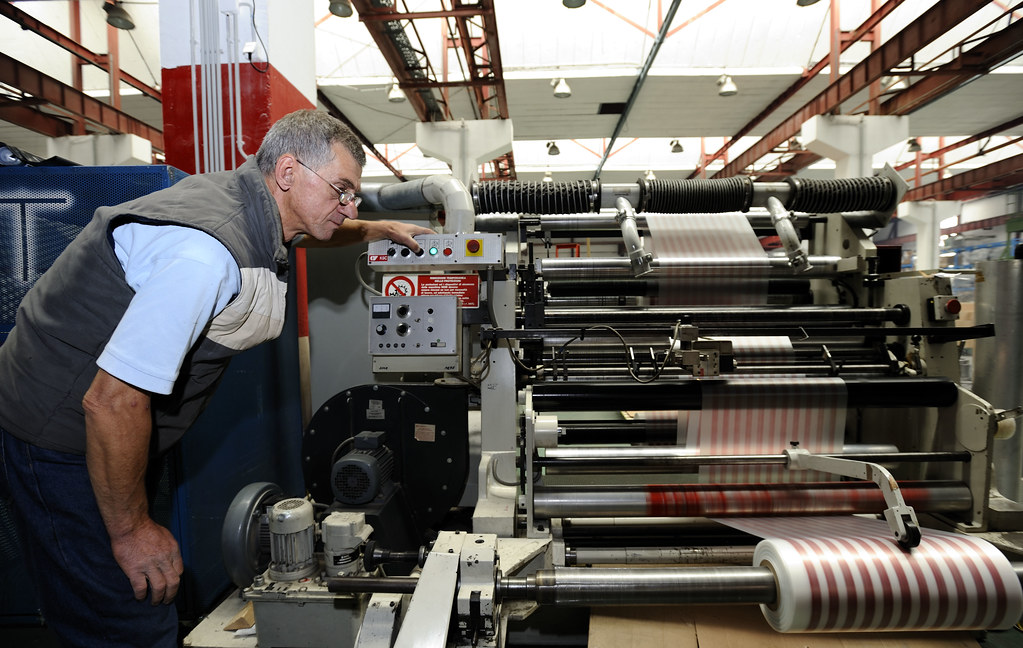Patience is a virtue that is often overlooked in today’s fast-paced world. In a society that values instant gratification and quick results, the importance of patience in achieving success cannot be overstated. Patience is the ability to wait calmly and persistently for a desired outcome, despite setbacks or delays. It involves having the self-control to resist impulsive decisions and the resilience to keep going even when faced with challenges. In this article, we will delve into the golden rule of success – patience – and explore how it can positively impact various aspects of life. Through a deep analysis of the concept of patience, its relationship with success, its benefits, and practical tips for cultivating patience, we will uncover why patience is a key ingredient for achieving lasting success.
Explanation of Patience:
Patience is more than just waiting; it is a multi-faceted trait that encompasses several important characteristics. Let’s take a closer look at the key elements of patience:

- Perseverance: Patience requires perseverance – the ability to keep going despite difficulties or setbacks. It means not giving up easily when faced with challenges or obstacles, but rather having the determination to push through and stay committed to the goal. Perseverance allows individuals to maintain their motivation and drive, even in the face of adversity, and keeps them focused on the long-term vision rather than getting discouraged by short-term setbacks.
- Tolerance: Patience also involves tolerance – the capacity to accept delays, uncertainties, and differences without getting agitated or frustrated. It means being able to tolerate discomfort, uncertainty, and inconvenience without reacting impulsively or getting discouraged. Tolerance allows individuals to maintain a calm and composed mindset, which is essential for making rational decisions and dealing with unexpected situations effectively.
- Self-control: Another crucial element of patience is self-control – the ability to manage one’s impulses, emotions, and desires. It means being able to resist the temptation of instant gratification and impulsive actions, and instead, making thoughtful and well-informed decisions. Self-control helps individuals avoid rash decisions that may lead to negative consequences in the long run, and instead, take calculated and strategic steps towards their goals.
The combination of perseverance, tolerance, and self-control makes patience a powerful tool in achieving success. It allows individuals to stay focused, resilient, and composed in the face of challenges, making wise decisions, and taking strategic actions to achieve their goals.
Relationship between Patience and Success:
Patience and success are intrinsically linked. Patience is not just a passive waiting game; it is an active mindset and approach towards achieving success. Let’s explore how patience plays a pivotal role in the journey towards success:
- Time and Effort: Success often requires significant time and effort. It is rare for success to be achieved overnight; most goals require consistent and persistent efforts over an extended period of time. Patience is crucial in this process, as it allows individuals to endure the ups and downs, the setbacks, and the delays that may come along the way. It keeps individuals motivated and committed to their goals, even when progress seems slow or when faced with failures or setbacks. Without patience, individuals may become discouraged or give up too soon, missing out on the opportunities that may have arisen with continued perseverance.
- Decision-Making: Patience also plays a critical role in decision-making. Impatience can lead to hasty decisions based on short-term gains, without considering the long-term consequences. In contrast, patience allows individuals to take the time needed to gather information, evaluate options, and make well-informed decisions. It helps individuals avoid impulsive actions that may lead to regrettable outcomes and instead make strategic choices that align with their long-term goals. Patience enables individuals to weigh the pros and cons, consider different perspectives, and make thoughtful decisions that are more likely to lead to success in the long run.
- Resilience: Success often comes with challenges and setbacks. It is natural to encounter obstacles and face failures along the way. Patience helps individuals develop resilience – the ability to bounce back from setbacks and keep moving forward. It allows individuals to stay calm and composed in the face of adversity, rather than getting discouraged or giving up. Patience helps individuals view failures as learning opportunities, and it gives them the strength to keep going despite difficulties. Resilience is a critical trait for success, as it enables individuals to persevere through tough times and continue their pursuit of their goals.
- Building Relationships: Success is not solely achieved in isolation; it often requires building relationships with others. Patience plays a vital role in building and maintaining meaningful connections. It takes time and effort to establish trust, establish rapport, and cultivate relationships with others. Patience allows individuals to invest in building relationships gradually, without expecting instant results. It enables individuals to listen, understand, and empathize with others, which are essential qualities for building strong relationships. Patience also helps individuals navigate conflicts or misunderstandings in relationships with a level-headed approach, rather than reacting impulsively or giving up on the relationship too soon. Building positive relationships with others is crucial for success in various aspects of life, including personal, professional, and social spheres.
Benefits of Patience in Success:
The practice of patience brings about numerous benefits that contribute to overall success in life. Let’s delve into some of the key benefits of patience:
- Better Decision-Making: Patience allows individuals to make better decisions by taking the time to carefully evaluate options and consider long-term consequences. It helps individuals avoid impulsive decisions that may lead to regrettable outcomes and instead make thoughtful choices aligned with their goals. Better decision-making leads to more effective and strategic actions, which ultimately contribute to success.
- Increased Resilience: Patience helps individuals develop resilience – the ability to bounce back from setbacks and keep moving forward. It allows individuals to stay calm and composed in the face of challenges and failures, and view them as learning opportunities. Increased resilience enables individuals to persevere through tough times and continue their pursuit of success, even when faced with obstacles.
- Enhanced Self-Control: Patience involves self-control – the ability to manage impulses, emotions, and desires. Practicing self-control helps individuals resist the temptation of instant gratification and impulsive actions, and instead make calculated and strategic decisions. Enhanced self-control leads to better impulse management, which is crucial for making wise choices and avoiding actions that may hinder success.
- Improved Relationships: Patience plays a pivotal role in building and maintaining positive relationships with others. It allows individuals to invest time and effort in building meaningful connections, which can lead to support, collaboration, and opportunities for success. Patience also helps individuals navigate conflicts or misunderstandings in relationships with a calm and composed approach, which can prevent the breakdown of relationships and contribute to overall success in personal and professional spheres.
- Long-term Success: Patience is a key ingredient for achieving long-term success. It enables individuals to persevere through challenges, make thoughtful decisions, and build meaningful relationships, which are all crucial elements for sustained success. Patience helps individuals stay focused on their long-term goals, rather than getting discouraged by short-term setbacks or distractions. The practice of patience sets the foundation for lasting success in various aspects of life.
Practical Tips for Cultivating Patience:
While patience is a valuable trait for success, it may not come naturally to everyone. However, like any other skill, patience can be developed and cultivated with practice. Here are some practical tips for cultivating patience in daily life:
- Practice Mindfulness: Mindfulness is the practice of being present in the moment without judgment. It involves paying attention to your thoughts, emotions, and sensations without reacting impulsively. Mindfulness can help you become more aware of your impatience triggers and allow you to respond with calmness and clarity rather than reacting impulsively. Regular mindfulness practice, such as meditation or deep breathing, can help you develop patience by increasing your self-awareness and ability to manage your emotions.
- Set Realistic Expectations: Impatience often arises when we have unrealistic expectations about how long something should take. Setting realistic expectations about the timeframes for achieving your goals can help you avoid frustration and disappointment. Understand that success takes time and effort, and progress may be slower than expected. Practice being patient with yourself and the process, and avoid comparing your progress with others. Remember that everyone’s journey is different, and success is not always measured by how quickly you achieve your goals.
- Develop Time Management Skills: Effective time management can help you avoid feeling rushed or impatient. Plan your tasks and activities ahead of time, prioritize them, and allocate enough time for each task. Avoid overcommitting or overloading yourself with too many tasks at once, as it can lead to stress and impatience. Practice being disciplined with your time and avoid procrastination, as it can lead to feeling rushed and impatient. Remember that managing your time effectively can contribute to better productivity and ultimately lead to success.
- Practice Delayed Gratification: Instant gratification is often the enemy of patience. Practice delaying gratification by resisting the urge to seek immediate rewards or instant results. Understand that some goals may require a long-term investment of time and effort before you can see the desired outcomes. Instead of seeking instant results, focus on the process and the progress you are making. Acknowledge and celebrate small wins along the way, and practice patience in waiting for the bigger rewards to unfold.
- Cultivate Empathy and Understanding: Practicing empathy and understanding towards yourself and others can also help you develop patience. Put yourself in others’ shoes and try to understand their perspectives and challenges. This can help you manage your expectations and avoid reacting impulsively or impatiently in challenging situations. Cultivating empathy and understanding towards yourself can also help you be more patient with your own progress and setbacks, and practice self-compassion.
- Learn from Setbacks: Setbacks and failures are inevitable in any pursuit of success. Instead of getting frustrated or giving up, practice patience by learning from setbacks. Reflect on what went wrong, what you could have done differently, and how you can improve moving forward. Use setbacks as learning opportunities and stepping stones towards your goals, rather than as reasons to feel impatient or discouraged. Embrace a growth mindset and focus on continuous improvement, and you will develop patience and resilience in the face of challenges.
- Seek Support and Accountability: Surround yourself with supportive and like-minded individuals who can provide encouragement, motivation, and accountability. Share your goals and progress with trusted friends, mentors, or colleagues who can hold you accountable and provide guidance when needed. Having a support system can help you stay patient and focused on your goals, and can provide perspective and encouragement during challenging times.
Video: Hard Work And Patience Are The Keys To Success
Conclusion:
Patience is a crucial trait for success in various aspects of life. It allows individuals to make better decisions, develop resilience, build meaningful relationships, and achieve long-term success. While patience may not come naturally to everyone, it can be cultivated and developed with practice. By practicing mindfulness, setting realistic expectations, developing time management skills, practicing delayed gratification, cultivating empathy and understanding, learning from setbacks, and seeking support and accountability, individuals can develop patience and use it as a tool for success in their personal and professional lives.
Remember that developing patience is a lifelong process and requires consistent effort, but the benefits are worth it. With patience, you can navigate challenges with grace, stay focused on your goals, and make better decisions that align with your long-term vision.












